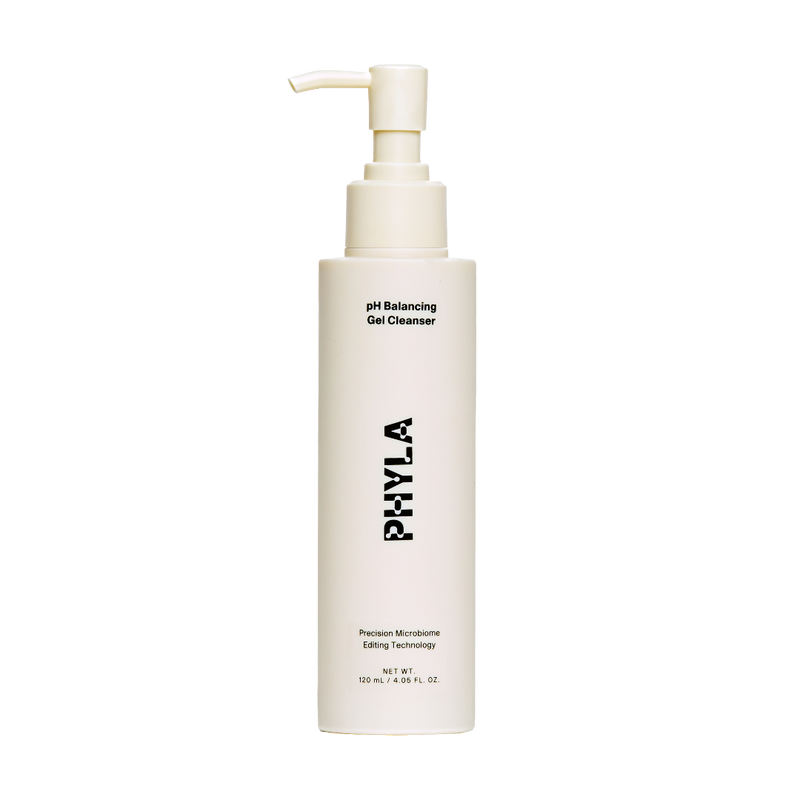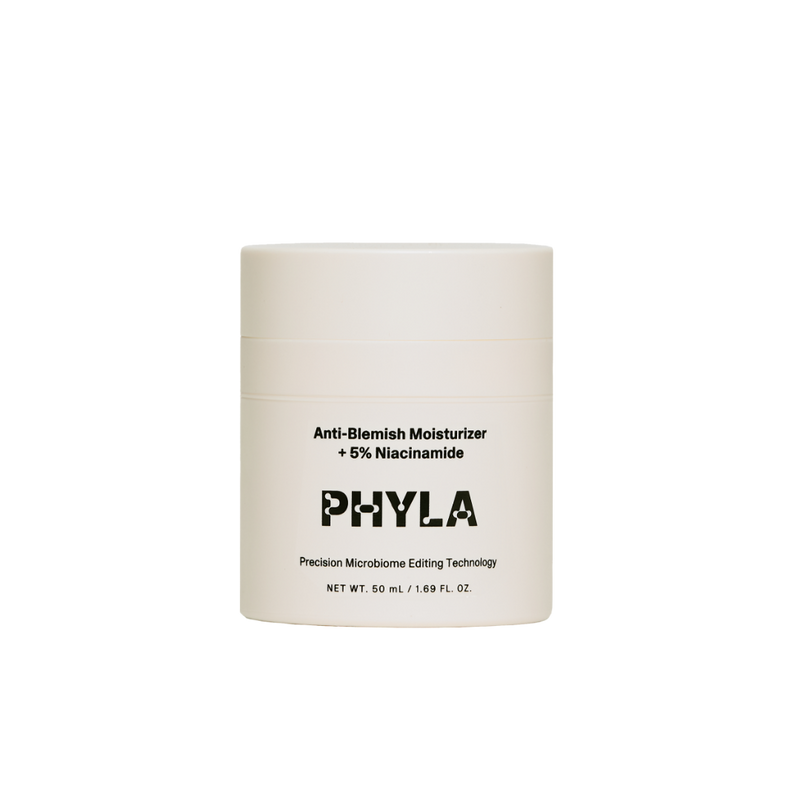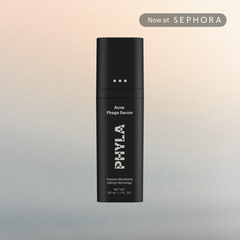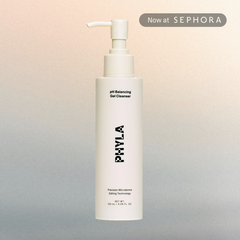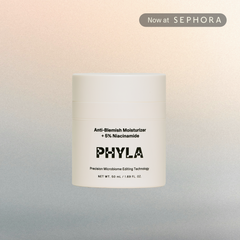Does Natural Skincare Work for Acne?
‘Natural’ is a broad term in skincare, so we break it down and help you separate fact from fiction.
Natural is in. Natural is hip. So does it work for acne?
To cut a long story short: no. But there’s a very important reason that people are attracted to natural remedies for acne, and it’s not what you think. More on that later, but first: what are natural remedies and how do they work?

‘Natural’ is a broad term in skincare, so we break it down and help you separate fact from fiction.
Natural is in. Natural is hip. So does it work for acne?
To cut a long story short: no. But there’s a very important reason that people are attracted to natural remedies for acne, and it’s not what you think. More on that later, but first: what are natural remedies and how do they work?
WHAT IS NATURAL SKINCARE?
Natural cures for acne usually have anti-inflammatory or antibacterial properties. These include apple cider vinegar, witch hazel, honey, green tea, tea tree oil, and even supplements like zinc and fish oil. While the mechanism of their action is similar to that of rigorously tested pharmaceutical products like benzoyl peroxide and antibiotics, they generally have a rather mild effect on acne. Here are three of the top reasons why natural cures for acne aren’t for everyone, and may not be the right choice for you in particular.
Firstly, natural remedies are usually food-safe, but are not meant to be used on the skin. As they do not undergo any prior testing for skin safety, they are known to frequently cause bad skin reactions and irritation, especially if you have sensitive skin. Cider vinegar is a mild acid and can cause redness and peeling, but also mess with your skin’s pH. Witch hazel contains alcohols that can dry out your skin. And while remedies like tea tree oil could possibly help you, a concentrated dose that’s left on for too long can lead to redness, itching and a burning sensation on the skin.
Secondly, these acne remedies are largely unsupported by medical studies and scientific data. While it may well work for some people, each person’s skin is different and the proven acne solutions work for a wide variety of skin types. Not so for natural acne products, which have highly variable results and more importantly, varying levels of safety. In fact, some recommended remedies are very questionable. For example, honey and supplements like zinc and fish oil are very unlikely to help with your acne. There is no scientific evidence supporting such products, and in some cases the doses required are so high that it risks hurting your skin or gut in order to see any difference. Yet there is no shortage of DIY recipes for honey face masks and scrubs, or advice on how supplements are the key to clear skin.
Lastly, these natural acne remedies aren’t formulated for use on the skin, and their dosage has not been tested to give optimum results. So if you use too much, it might cause skin damage or trigger a breakout; but if you use too little, you won’t see any results. It’s very hard to be consistent using DIY products over a period of time because they lack consistency and they’re definitely not a long-term solution for a problem like acne. If you have moderate or severe acne, you are unlikely to see satisfying results from home remedies.
SUPERFOODS IN ACNE PRODUCTS
One enduring trend of the past decade has been the increasing use of food extracts in skincare products. Brands are using ingredients like watermelon and kale in their products, with the hope that our increased focus on healthy eating and nutrition will conflate these ingredients with skin health. It’s true that blueberries are rich in antioxidants, or that algae contain polysaccharides and micronutrients that our body needs.
But there is scant evidence that smearing blueberries or algae extract on your skin would have the same benefits as eating these foods. For the most part, you’re probably better off eating healthy foods than soaking in them. And while superfoods might help your skin a little bit, when it comes to acne there is no proof that it helps at all. Antioxidants, phytonutrients and astringents have a limited effect on acne since they don’t address its root cause. In general, the marginal benefits of So if you want to get the skin benefits of vitamin C, it’s better to use a serum than baste yourself in lemon juice.
PROBIOTICS IN ACNE
Probiotics play a key role in gut health, and fermented foods like yogurt, kefir, and sauerkraut have been part of traditional diets for centuries. Recent research on the microbiome – the community of bacteria and other microbes that live on and within our body – has shed further light on how the microbiome keeps us healthy. But just as you wouldn’t expect an orchid to survive the desert, our gut bacteria and skin bacteria are adapted to live in completely different environments. So it makes sense that probiotics for the gut wouldn’t necessarily confer the same benefit on the skin.
However, the probiotic used in most probiotic skincare products is yogurt bacteria, even though there is no substantial link between yogurt bacteria and skin health. Even worse, they use dead bacteria in their formulation. It’s like buying a cup of yogurt that has NO living bacteria – guaranteed! So it’s interesting to understand exactly what probiotic benefits these dead yogurt bacteria are actually supposed to be having on our skin, and why they’re called ‘probiotic’ in the first place.
Although other skincare companies are meeting the interest in probiotics with dubious products, there is hope. Scientifically speaking, the study of the microbiome holds a great deal of promise. Understanding it better can unlock the mysteries of multiple skin conditions, from acne to eczema and psoriasis. It might even have an impact on other health factors, such as cardiovascular health. Products designed with solid microbiome research will be effective without harsh side effects caused by conventional products. Acne is a great example of this. In fact, about a third of people who find benzoyl peroxide effective have to stop using it, because it is too harsh on their skin. Unfortunately, most acne-fighting ingredients cause skin damage that accumulates over years and is irreversible. This was one of the chief motivations behind developing Phyla – to build an acne-fighting system that delivers powerful results without the side effects or skin damage that most people are forced to accept with their skincare.
Acne innovation has stalled out for the last 40 years. Don’t let the constant parade of ‘new’ and ‘innovative’ acne products fool you – most of the innovation comes in the form of combining old acne ingredients, or making these harsh products a bit less damaging. But, Phyla is built on a revolutionary breakthrough in skin microbiome research – we discovered a probiotic that actually lives on healthy skin, and specifically kills the acne-causing bacteria to balance our microbiome. This is a truly natural probiotic, isolated from healthy skin, for healthy skin.


